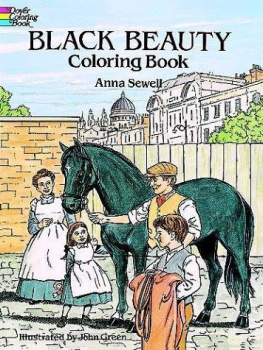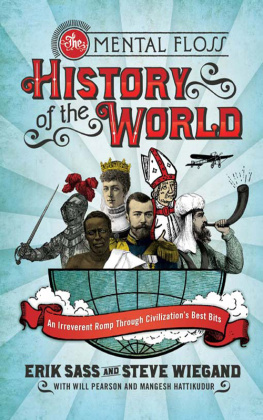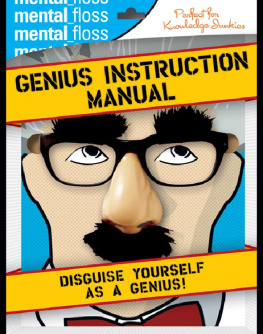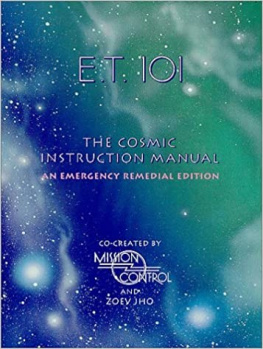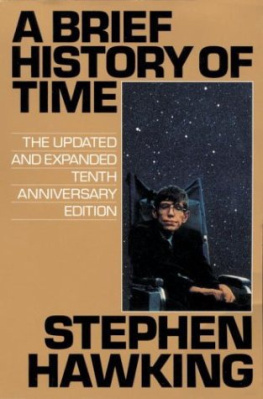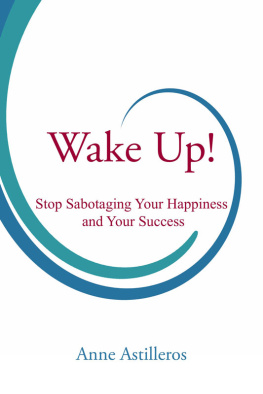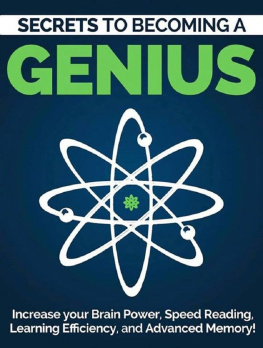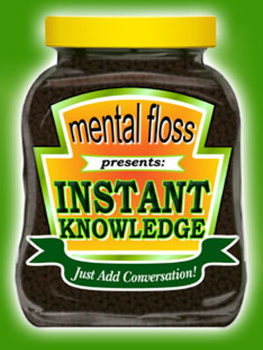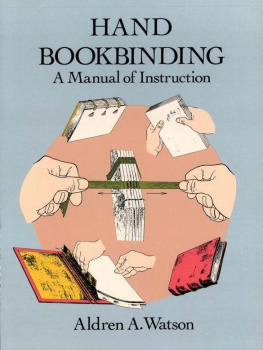mental_floss
GENIUS INSTRUCTION MANUAL
edited by Will Pearson, Mangesh Hattikudur, and John Green

A few months ago, the mental _floss staff got into a discussion of how we might save the world. But as people who basically only enjoy sitting around and having discussions, we figured we were ill-equipped toyou knowactually do anything. We werent exactly going to cure cancer, or fix poverty, or even build DeLoreans that travel back in time and allow us to save millions of lives by explaining to the year 1931 that, as it turns out, Adolf Hitler would not make a very good leader of Germany.
But still, we wanted to make a difference. If we could only save the world, we figured, we could make a lot of money and become very famous. And then, one day, it occurred to us: What this world needs is more geniuses . Just look at all the things geniuses have done so far: Tesla and electricity; Newton and physics; Einstein and relativity; Shakespeare and iambic pentameter; Ernest Hemingway and cats (see p. 23). Imagine what a wonderful world we might have if genius were available to everyone! And so we decided to create a single, slim volume that would make its readers brilliantly, searingly smart. Surely this book would change the world for the better. And also sell a lot of copies.
So we called up some geniuses we know and asked them to write the book. Thats when our troubles started. One by one, every Poindexter in our Rolodex refused the task: Stephen Hawking was way too expensive; Bill Gates claimed he had a world to run; Gabriel Garca Mrquez wanted to focus on fiction; Albert Einstein, we were sad to learn, is deceased.
And so it fell to me. Id like to say that I got the gig because Im the most brilliant among my colleagues, but Im afraid the opposite is true: My lack of genius when I began this book was so profound that my job had become insecure. In fact, I was put on genius book duty in the hopes that by taking readers from Normal to Genius, I myself might go on the same journey. And thats precisely what happened to me. A few short months ago, I didnt know my Xeno from my Zero, my fusion from my fission, my Troilus and Loves Labour Lost from my Merry Wives of Windsor . And now, having finished the book, I can tell you with authority: I am still not a genius.
But I can totally fake it. Relativity? No problem. String theory? Check. The ins and outs of major isms? Heck yes. In fact, I know the isms so well that Ive created one of my own:
geniusishism
A difficult-to-pronounce ideology, which holds that feeling like a genius and looking like a genius is about 94% of being a genius.
That is my solemn vow: Careful reading of this book will either make you a genius, or else it will make you geniusish, which according to my calculations is basically just as good. So, go ahead and dive in. The brilliant topics enclosed should have your mind bouncing around like a giant genius pinball, hitting one unpredictable revelation after another. After all, what does your understanding of teleporting have to do with the romantic strategies of various eggheads? And whats that got to do with the intricacies and efficacies of various genius dress codes? Nothing, except youre going to be a whole lot smarter after this wild ride, so buckle up and enjoy it. And while youre at it, tell your friends to enjoy it. And also, their friends. Because the world needs saving, cancer needs curing, climate change needs addressing, and quantum mechanics needs refining. And you, future genius, are just the person for the job.
(If youre serious about this whole Genius Thing)
Chess
Although genius chess players occasionally suffer from some problems (noted chess master Bobby Fischer, for example, had all the silver fillings in his teeth removed so the KGB would stop transmitting radio signals through them), quite a lot of geniuses have enjoyed chess, including:
Early in his career filmmaker Stanley Kubrick , supplemented his income largely by hustling chess players in New Yorks Washington Square.
Ludwig van Beethoven , a chess fanatic who was friends with the man who invented the Turk, the worlds first chess automaton. A cupboard-shaped contraption that appeared to be a robot but was actually controlled by a skilled player hiding inside it, the Turk beat many of the greatest luminaries of the 18th century, from Napoleon to
Benjamin Franklin , who once said, The game of chess is not merely an idle amusementfor life is a kind of chess.
Play an Instrument
Not all geniuses go in for music, of course. Samuel Johnson was once told that a particular violin piece was very difficult. Difficult, do you call it, Sir? Johnson replied. I wish it were impossible. But the irascible Dr. Johnson aside, a great many geniuses played an instrument in their spare time, including:
Beginning when he was about 6 and ending when he was 13, Albert Einstein took violin lessons. A lot of us can say that, of course, but Einstein actually stuck with the instrument, and enjoyed playing at parties well into his old age. Youve never partied until youve partied with physicists. Their partying force (f) equals the mass (m) of bodies on the dance floor times the acceleration (a) of the DJs beats, if you know what were saying. (For the record, we dont really know what were saying.)
Benjamin Franklin, who, it is quickly becoming clear, found time to do everything . Franklin played the viola and also invented an instrument he called the glass armonica, which produces music in much the same manner as rubbing a wet finger on a wine glass.
Before he became chairman of the Federal Reserve and was acclaimed for his brilliant economics mind, Alan Greenspan was a professional jazz musician, playing saxophone and clarinet in jazz clubs in New Yorks Greenwich Village in the 1950s. In fact, Greenspan attended the world-renowned Julliard School before getting a Bachelor of Science degree from NYUs School of Commerce.
Drinking
Now, were not going to advise that you drink. Drinking can be very bad for geniuses (witness the poet Dylan Thomas, who died at the tender age of 39 soon after noting: Ive had eighteen straight whiskeys; I believe thats the record). Were just saying that quite a lot of people who enjoy a good drink seem to end up geniuses, including:
Noted comic genius and part-time philosopher W. C. Fields said, A mans got to believe in something. I believe Ill have another drink.
Its probably no coincidence that Tennessee Williams wrote so brilliantly about alcoholics (see, for instance, the character Brick in Cat on a Hot Tin Roof ). A lifelong alcoholic who wrote all of his plays while drinking, Williams liked to work early in the morning, and usually had his first martini down by 8 a.m.
Widely considered the best dancer of her era, Isadora Duncan (18781927) was known for her long string of love affairs and for her absolute inability not to spend money the moment it was given her. Being perpetually short of cash and an alcoholic tends to lead to poor decisions: According to her biographer, Duncan sometimes mixed cologne with the last dregs of various wine bottles to cop a buzz. So if anybody ever offers you a cocktail called The Isadora, youre well advised to pass.
Sports
Those seeking the bright lights of political genius might be well-advised to play sports (Teddy Roosevelt was a boxer; Gerald Ford an all-American football player; George W. Bush a cheerleader at Andover), but your standard geniuses tend to be miserable at sports. Nuclear physicist Robert Oppenheimer , for instance, was so embarrassed by his lack of physical fitness that not only did he opt out of sports as a child, he also refused to climb stairs at his school. Man, if only Robert Oppenheimer had been in school with us, we might not have been picked last for kickball.


